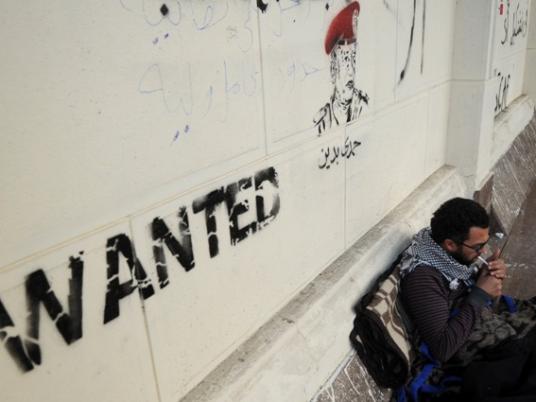
Protesters camping at the sit-in in front of the cabinet are calling for the formation of a national salvation government with the full powers currently held by the ruling military council.
They chose the nearby cabinet to extend the Tahrir sit-in and to protest the appointment by the ruling Supreme Council of the Armed Forces of Kamal Ganzouri as prime minister. Eleven years ago, Ganzouri held the post under the toppled regime of Hosni Mubarak. More importantly, like his predecessor Essam Sharaf, Ganzouri is believed to serve in a weak cabinet that works as a secretariat for SCAF.
Talk about a fully empowered salvation government rose after the violence of Tahrir last week caused over 42 deaths as police clashed with protesters.
The proposed revolutionary government is tentatively composed of some of Egypt’s potential presidential candidates and headed by presidential hopeful Mohamed ElBaradei.
Ihsan Bakr, a translator and researcher, said, “It is a proposition and is amendable to see who’ll be in it but what we need is any alternative besides continued military rule. We have a right to correct our mistakes with the military, we thought they were with us but they’re not, we need a revolutionary government.”
Currently the matter of the salvation government and who’ll be in it is not confirmed, but ElBaradei announced that he’s willing to head it. Novelist Alaa al-Aswani announced the government in Tahrir Square Friday night, with ElBaradei as Prime Minister and Aboul Ela Mady from the Wasat party and lawyer Hossam Eissa as his deputies. Abdel Moneim Abouel Fotouh was to head the Cairo chapter of the government along side names such as columnist Nawara Negm and the currently incarcerated activist Alaa Abdel-Fatah.
The demand is for this government to have full authorities to rule the country during the transitional period according to protester Mona Rabie, a film editor. “It doesn’t matter which ones with the pro-revolution stands are in the government, it will save us from what we are in now. The important thing is to make it happen.”
Protesters in the square and others have become extremely critical of SCAF rule, and feel that it has badly mismanaged the transitional period. A student, Mohamed al-Masry, said, “The salvation government is the most viable solution bearing in mind that this is a revolution and we need a government with full powers. What we need is a government that will completely restructure the security forces and the national media, and hold to account the perpetrators of the attacks on Tahrir. There are no compromise solutions.”
SCAF had taken over in the wake of Mubarak’s ouster, who in his final decision as president transferred the affairs of the country to the council of 20 men who run the armed forces. They had initially taken the position that they had sided with the people, but in recent months it has been felt that the council’s stance always seems opposed to the 25 January revolution and its ideals.
“We need a government that comes from the square,” said pregnant protester Ghada Mohamed Naguib, “It should be inclusive and there is consensus about the names being presented. We’re here to help grant this government the relevant powers it needs and SCAF needs to be removed from political power with all its authorities transferred to the salvation government.”
However it would require a sizable number of people to camp out in the square at all times to keep the pressure up on SCAF to rescind its powers, who not only seem unwilling to do that but are also adamant that the parliamentary elections will take place on time this week. Ali, a protester, said, “The issue is that people are not considering the square as the one and only solution, it is plan A and the elections are plan B. There should be no plan B, you have to bet on the revolution.”
